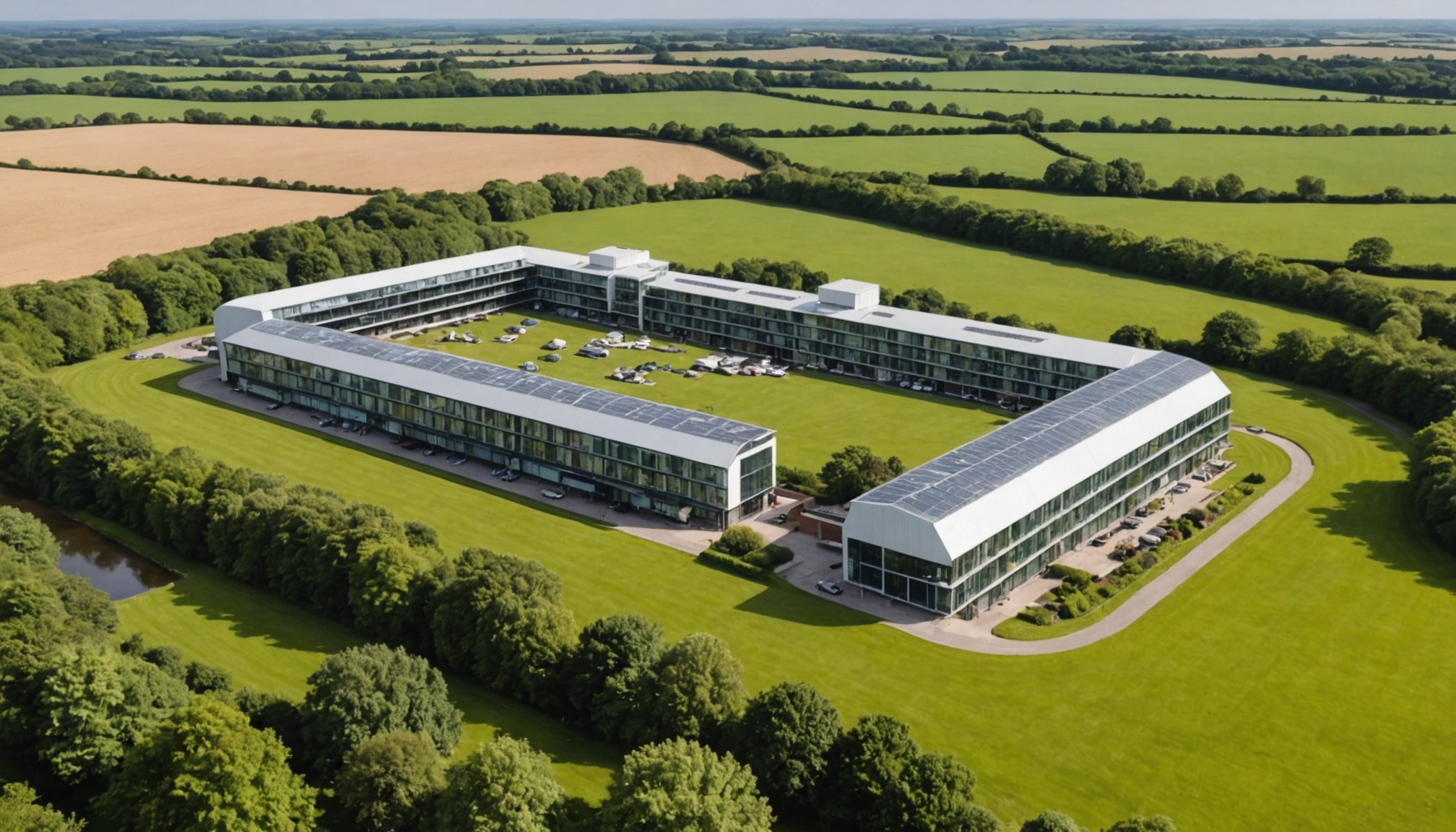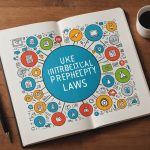Understanding the UK Environmental Assessment Process
Navigating the UK environmental assessment framework is crucial for initiating any sustainable hotel projects. This structured process evaluates the potential environmental impacts of development projects, ensuring adherence to national regulations and policies. Undertaking an environmental assessment is a pivotal step for hotels aiming to build sustainably and responsibly.
The environmental assessment framework serves as a guiding tool to identify, predict, and evaluate the ecological impacts of proposed projects. It assists developers in planning more sustainably by incorporating environmental considerations from the early stages. For sustainable hotel projects, these assessments are essential, enabling developers to mitigate potential environmental harm and optimize positive impacts on nature and the local community.
Additional reading : Essential Insurance Coverage Every UK Home Renovation Business Needs to Thrive
A multitude of key stakeholders engage in the assessment process, each contributing unique expertise and perspectives. These typically include governmental entities responsible for enforcing environmental laws, independent environmental consultants who conduct the assessments, and local communities whose input can offer valuable insights into the potential social and ecological impacts. Engaging these stakeholders ensures a comprehensive understanding of the environmental implications, fostering transparency and enhancing the legitimacy of the project’s sustainability credentials.
Through prompt environmental assessments, hotels not only fulfill regulatory requirements but also contribute positively to environmental preservation while promoting sustainable tourism practices.
Also to see : The ultimate playbook for startups: navigating intellectual property laws in the uk
Legal Requirements for Environmental Assessments
Understanding the legal requirements for environmental assessments is crucial for any development project within the UK, especially when it comes to hotel projects. The significance of these assessments is underscored by various legislations and regulations that dictate compliance.
Primary Legislation Governing Environmental Assessments
In the UK, the Environmental Impact Assessment (EIA) Regulations serve as the primary legislative framework for environmental assessments. These regulations aim to ensure that potential environmental effects are thoroughly evaluated before any project is approved. Complying with EIA regulations is not optional; it is a crucial step in the planning process.
Relevant Regulations for Hotel Projects
Hotel projects must adhere to specific EIA regulations. These include evaluating impacts on local ecosystems, noise levels, and socio-economic factors. Ignoring these regulations can lead to severe consequences for developers, including potential delays and additional costs.
Compliance Obligations and Consequences
Non-compliance with UK environmental laws can lead to significant penalties. These range from heavy fines to halting the development process altogether. It is not merely about avoiding penalties; adhering to these regulations demonstrates a commitment to sustainable and responsible development. Understanding and fulfilling these compliance obligations not only benefits the environment but also enhances the reputation of developers committed to maintaining UK legislation standards.
Assessment Methodologies for Sustainable Projects
Assessment methodologies play a crucial role in the evaluation of sustainable hotel projects. They help determine the environmental impact and economic viability of such initiatives. Evaluation techniques vary and involve both qualitative and quantitative approaches to provide a comprehensive assessment.
When it comes to conducting environmental assessments, a qualitative approach might involve stakeholder interviews and expert opinions to understand the social impact. In contrast, quantitative techniques typically include data analysis and statistical models to measure emissions and resource consumption. Each method provides unique insights, making integration essential for a holistic view.
A critical factor in these assessments is the incorporation of sustainability metrics. These metrics are crucial as they help to ensure that all aspects of the project are aligned with long-term environmental goals. The most common metrics used typically focus on areas such as energy efficiency, waste management, and water usage.
In the hospitality industry, integrating sustainability into project evaluations is not just beneficial but necessary. Evaluating these metrics ensures that new developments align with broader environmental objectives and support the global push for sustainable infrastructure. This comprehensive approach using various assessment methodologies allows for more effective and sustainable decision-making.
Case Studies of Successful Environmental Assessments
Exploring case studies of hotels in the UK that have excelled in environmental assessments reveals insightful best practices and strategies. These examples illustrate the application of sustainable measures tailored to their unique contexts.
Notable Sustainable Hotel Projects in the UK
Several hotels have become pioneers in implementing sustainable solutions. These establishments have effectively integrated eco-friendly practices into their operations, significantly reducing their carbon footprints. Innovative technologies, such as automated energy management systems, have been instrumental in these successful implementations.
Lessons Learned from Case Studies
Analyzing these hotels provides valuable insights into the intricate processes of environmental assessment. One important lesson is the necessity of continuous monitoring and adaptation to evolving environmental standards. Moreover, involving stakeholders from the early stages enhances the likelihood of success. Establishing partnerships with local suppliers supports sustainability goals and strengthens community ties.
Key Factors Behind Successful Outcomes
The key drivers behind these successes often include robust planning and the incorporation of cutting-edge technologies. Regular staff training ensures everyone is aligned with sustainability objectives. Furthermore, understanding the local environmental context and practising transparency in reporting progress helps build trust with guests. Learning from these case studies can guide future projects, ensuring they adhere to proven methods whilst encouraging innovative approaches.
Frameworks and Tools for Conducting Assessments
In the realm of environmental assessments, a multitude of frameworks and tools exist to streamline the evaluation process. One prominent framework is the Life Cycle Assessment (LCA), which is instrumental in assessing the environmental impacts of a product throughout its lifetime. It considers aspects from raw material extraction to disposal, offering an in-depth view of sustainability.
For project managers and consultants, tools like SimaPro and OpenLCA provide comprehensive software solutions designed to simplify sustainability evaluations. These tools are equipped with extensive databases that facilitate accurate life cycle data analysis, enabling precise predictions and interpretations of environmental impact.
Additionally, resources such as the ISO 14040 series offer guidelines for conducting systematic assessments, ensuring professionals adhere to international standards when planning and executing projects. These resources not only help in maintaining consistency and integrity across evaluations but also assist in aligning strategies with global sustainability goals.
For those seeking further insights, the Global Reporting Initiative (GRI) provides a rich repository of methodologies and assessment resources. Whether it’s quantifying carbon emissions or optimizing resource usage, these frameworks and tools are indispensable for informed decision-making and promoting sustainable practices.
Tips and Best Practices for Sustainable Hotel Projects
Implementing sustainability tips and following best practices are crucial for successful sustainable hotel projects. These tips not only foster positive environmental impact but also enhance the efficiency and reputation of the establishment.
Strategies for Effective Project Planning
For robust project planning, integrating sustainability from the very start is vital. This includes setting clear sustainability objectives and incorporating them into the project management plan. Establishing realistic goals and maintaining flexibility allows for adjustments as new sustainability developments emerge.
Engaging Stakeholders and the Community
Engaging stakeholders is essential for fostering a shared commitment to sustainability. Involving local communities and stakeholders in the planning process encourages mutual understanding and support. Their insights can guide effective decisions, improving overall project success.
Continuous Improvement in Sustainability Practices
Adopting continuous assessment of sustainability practices ensures projects remain aligned with environmental goals. Regular audits and performance reviews identify areas for improvement, thus facilitating consistent advancement. Implementing feedback loops encourages continual refinement and successful adaptation to new challenges.
In sustainable hotel projects, recognizing and optimizing these sustainability tips within project management not only ensures environmental benefits but also bolsters the hotel’s operational efficiency and community relations.











